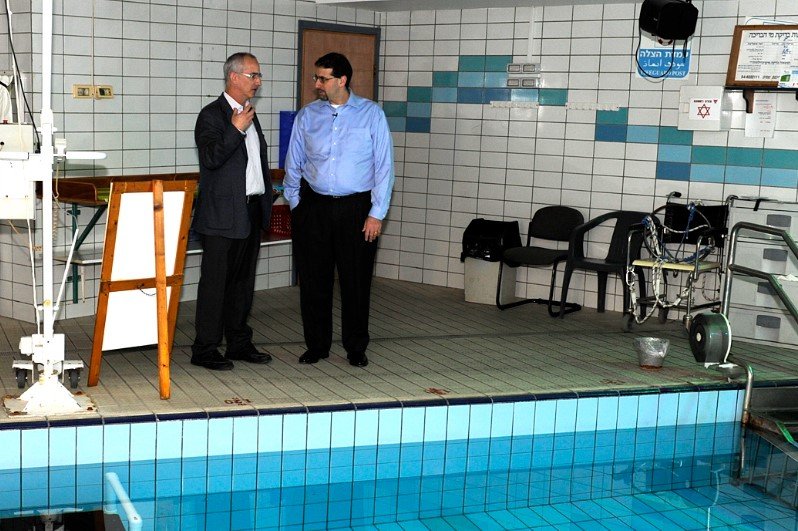Despite relentless criticism and biased resolutions against Israel, the decision to maintain a presence at the United Nations has become an act of defiance. Beit Issie Shapiro’s work highlights why standing firm in international forums is more crucial than ever.
For years, Israel’s presence at the United Nations (UN) has been marked by controversy, largely due to a wave of resolutions that critics claim carry inherent bias. Since 2006, the UN General Assembly has passed more resolutions condemning Israel than all other nations combined. This stark reality raises an uncomfortable question for Israeli organizations like Beit Issie Shapiro: should they continue participating in UN initiatives, or walk away to avoid legitimizing an institution seen as hostile?
For years, Israel has been at the center of contentious debates within UN bodies. And for organizations like Beit Issie Shapiro, an Israeli leader in disability rights and inclusion, the dilemma is more than a matter of politics. It’s about advancing universal human rights—without apologies.
Israel’s Unapologetic Stand at the UN
It’s undeniable that Israel faces persistent challenges at the UN, but pulling out would only silence one of the nation’s most valuable voices on the global stage.
Israel’s contributions to disability rights, for example, have been nothing short of groundbreaking. From assistive technologies to therapies for those with disabilities, Israel has made strides that many countries still look to replicate. The UN’s own recognition of Israeli-developed models for disability inclusion shows just how much Israel has to offer, despite the ongoing criticisms that come from some member states.

One of the more glaring examples of bias is seen in UNESCO, an agency dedicated to promoting global peace and security through cooperation in education, culture, the arts, and sciences. While UNESCO’s mission is noble, its repeated efforts to delegitimize Jewish connections to historic and religious sites in Israel stands as a stark contradiction to the very ideals the agency professes.
Despite this, Beit Issie Shapiro continues to participate in UNESCO’s programs, maintaining its seat at the table while pushing back against the bias it regularly faces. It’s a delicate balancing act—standing firm in their beliefs, yet refusing to give in to the political pressures that try to erode Israel’s identity.
The High Stakes of Withdrawing
For many, the temptation to withdraw from such forums seems like a simple solution. If Israel doesn’t engage, then it won’t have to endure biased resolutions and inflammatory rhetoric. But in reality, stepping back may do more harm than good.
When Israel pulls out, it loses its voice in international debates. The absence of Israeli input could silence important discussions, especially in areas where Israel has developed innovative solutions, like disability rights. In 2023, despite the UN’s General Assembly vote condemning Israel’s actions in the wake of terrorist attacks, Beit Issie Shapiro stayed engaged, speaking out against the biased narrative.
Withdrawing from the UN would only leave a void, one that could easily be filled with inaccurate depictions of Israel and its role in global humanitarian efforts. By staying at the table, Israel can continue to present a counter-narrative that showcases its true contributions to society—not just in terms of security, but in its commitment to human rights.
The Power of Representation
For Beit Issie Shapiro and others in Israel’s disability rights community, maintaining a presence at international forums isn’t about ignoring the political challenges—it’s about using those challenges as a platform for advocacy.
At the UN, Israel’s contributions in the field of disability rights have been lauded by many countries. From therapeutic models to the development of assistive technologies, Israel’s role is recognized as a leader in the global push for inclusion. And when it comes to disabilities, the need for inclusivity transcends political boundaries.
By maintaining its position at the UN, Beit Issie Shapiro ensures that Israel’s innovations reach a global audience. Just recently, their work in Augmentative and Alternative Communication (AAC) and assistive technology was highlighted in UNESCO’s “Innovative Technologies for Inclusive Education” report. These contributions are not just theoretical—they are tangible solutions that benefit millions around the world.
And yet, Israel’s critics at the UN have not relented. Instead, they continue to focus on issues that obscure the country’s significant achievements. But Beit Issie Shapiro’s commitment to speaking out against the bias while also contributing to the global conversation is proof that representation matters.
A Global Model for Advocacy and Inclusion
Staying engaged with the UN, despite the hostile environment, sends a powerful message. It’s a message that says Israel will not back down in the face of adversity, especially when it comes to advocating for people with disabilities. It also says that Israel’s commitment to human rights isn’t conditional—it doesn’t depend on the politics of the day or the whims of international bodies.
Even in the face of systemic bias, Israel has the opportunity to lead by example. When the UN Committee on the Convention of Rights of Persons with Disabilities met in June 2024, Beit Issie Shapiro showed up—not only to participate but to challenge the bias head-on. The decision to remain in these spaces and speak up about Israel’s stance has proven more effective than walking away.
By staying at the table, Israel shows the world that there’s a place for truth in the dialogue, and that global humanitarian efforts are stronger when they’re inclusive of every nation, even those facing criticism. It’s a strategy that many may view as bold, but for Israel, it’s a necessary one.
